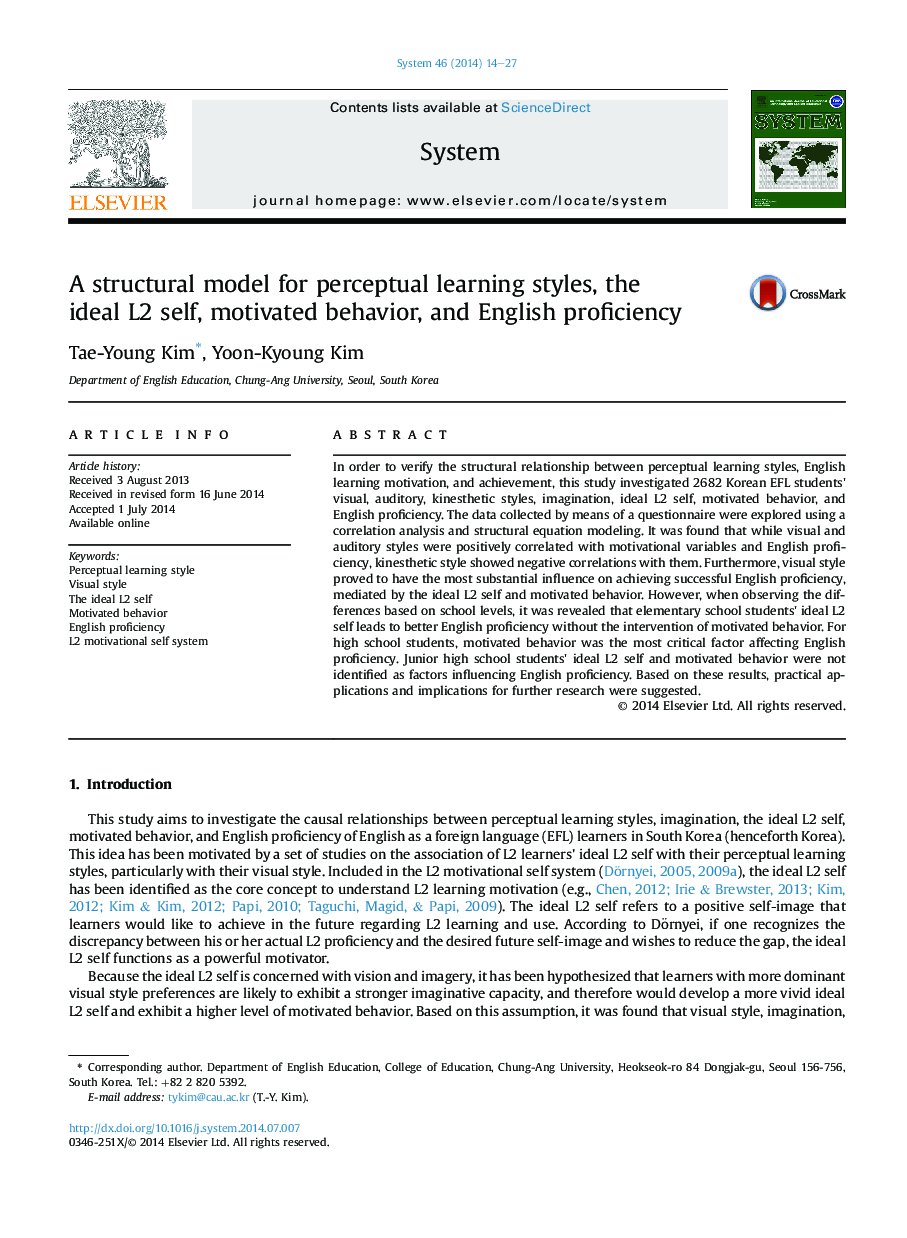| Article ID | Journal | Published Year | Pages | File Type |
|---|---|---|---|---|
| 6849555 | System | 2014 | 14 Pages |
Abstract
In order to verify the structural relationship between perceptual learning styles, English learning motivation, and achievement, this study investigated 2682 Korean EFL students' visual, auditory, kinesthetic styles, imagination, ideal L2 self, motivated behavior, and English proficiency. The data collected by means of a questionnaire were explored using a correlation analysis and structural equation modeling. It was found that while visual and auditory styles were positively correlated with motivational variables and English proficiency, kinesthetic style showed negative correlations with them. Furthermore, visual style proved to have the most substantial influence on achieving successful English proficiency, mediated by the ideal L2 self and motivated behavior. However, when observing the differences based on school levels, it was revealed that elementary school students' ideal L2 self leads to better English proficiency without the intervention of motivated behavior. For high school students, motivated behavior was the most critical factor affecting English proficiency. Junior high school students' ideal L2 self and motivated behavior were not identified as factors influencing English proficiency. Based on these results, practical applications and implications for further research were suggested.
Related Topics
Social Sciences and Humanities
Arts and Humanities
Language and Linguistics
Authors
Tae-Young Kim, Yoon-Kyoung Kim,
